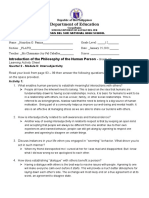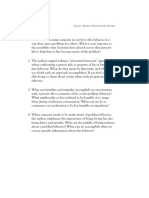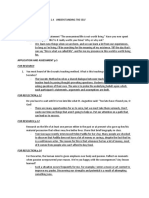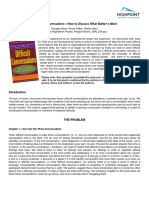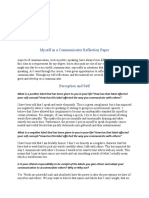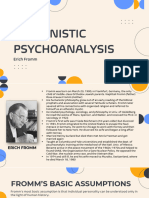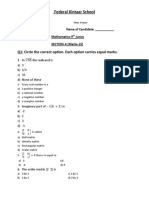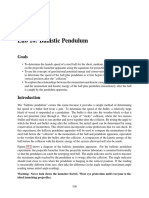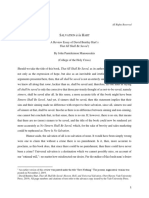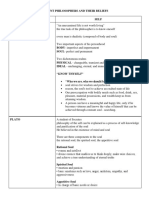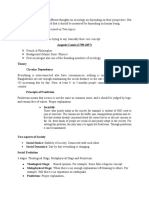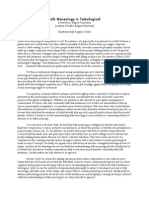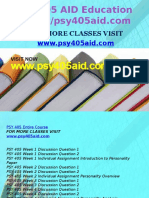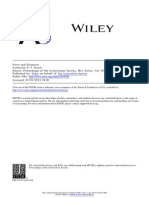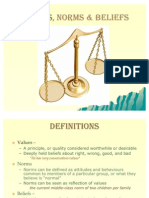Reading Comprehension
Practice exercises
Passage 1:
We live in an age of great hurry and great speed. Men have lost their inward resources. They
merely reflect. Like a set of mirrors, opinions which they get a little relaxation, they turn to
material changes from outside rather than to inward resources. This internal space is
responsible for mental and nervous troubles. The cure for this is not so much treatment by
medicine and surgery but a recovery of faith in the ultimate goodness, truth and the decency
of things. If we can recover that faith, if we are able to live in this world with our
consciousness cantered in the intimacy of the spirit, many of the problems to which we are
subject today may be overcome. Our people were regarded as aspiring after abstract insight,
but we seem to forget that it never occurred to them to equate eternal life with either the
surrender of the mind or the sacrifice of the bodyBody, mind and spirit must be integrated,
and they must lead to a harmonious developed life. If we get that, we have life eternal.
a. What is the main idea of passage?
b. What is writer’s style?
c. Who is the audience of this text?
Passage 2:
People do not always do the things we want them to do. No matter how reasonable or
minimal our expectations may be, there are times when we are let down. Naturally, we feel
upset and hurt when our expectations are not met. We dread confrontations because they are
unpleasant and can damage relationships. Yet not confronting a person does not solve the
problem because unresolved issues also affect relationships in an adverse way. The real
problem lies in our style of confrontation, not in the issue. Typically, we use character-based
confrontations. They help in emitting our anger and hurt, but that is the only thing they do.
They lead to angry showdowns and bring all discussions to a grinding halt.
It is important to remember that self-image is the most important possession of all human
beings. It is the way we view and regard ourselves in our own eyes and in the eyes of others.
As self-conscious beings, we are acutely aware of our image and constantly work towards
protecting it from any damage. We also seek approval from others about our own self-image.
We feel distraught if we sense that there is even a slight threat to our self-image, because our
character is the essence of our lives.
To ensure a rational dialogue over dashed expectations, we need to organize issue-based
confrontations. They involve an explanation of which actions have bothered us, in what
manner and what changes we would like from the other person.
Questions:
i. What is the theme of text?
ii. Provide a suitable title for the passage.
iii. What is the conclusion of passage?





